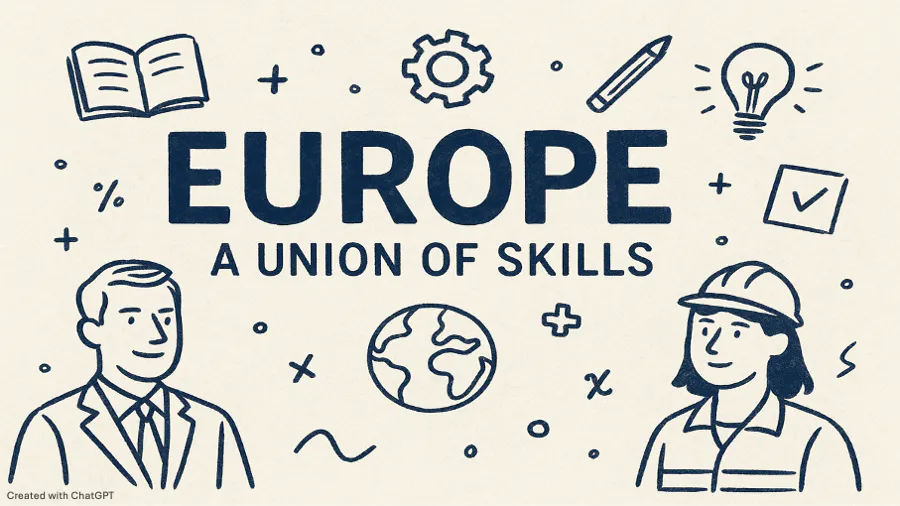Europe, a union of skills: Tackling Europe's talent trap
May 2025

Global competition, demographic shifts and technological change demand a workforce that is more agile, skilled and mobile than ever before. Yet, many European regions are caught in a downward spiral, with an aging population, young people and skilled workers leaving, businesses struggling to find talent, investment drying up and regional development slowing.
In response to these challenges, the European Commission has launched the concept of a 'Union of Skills' to rethink how Europe educates, connects and retains its workforce. Initially, the idea of a ‘Union of Skills’ is spatially blind, but it will certainly have an impact on regional development, both in regions left behind and facing talent traps, and in thriving regions. Optimistically, it could become a strategic answer to a fundamental question: How can Europe ensure that all people and places have a future in the green and digital age? It could reframe skills not just as a matter of individual empowerment, but as a foundation for collective resilience, inclusion and territorial balance.
The talent trap: A challenge for regional development
The skills shortage is not new, but it has become one of the EU's pressing structural problems. By 2023, more than three-quarters of companies in some member states reported difficulties in finding workers with the right skills. Demographic trends are exacerbating the situation: between 2022 and 2030, the EU's working-age population is expected to shrink by 3.5 million people.
To read this post you'll need to become a member. Members help us fund our work to ensure we can stick around long-term.
See our plans (Öffnet in neuem Fenster)
Bereits Mitglied? Anmelden (Öffnet in neuem Fenster)